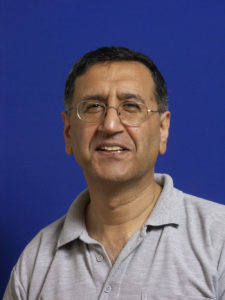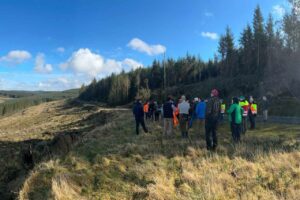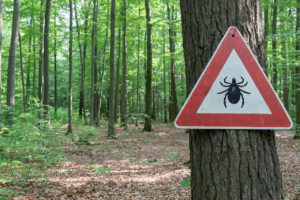Speaker day 1 on: Biopesticide-based products and strategies for control of tree pests
Hester McQueen, ICF Marketing and Communications Officer, interviews Professor Tariq Butt as he prepares to address the Institute’s forthcoming National Conference: Innovation for Change.

Professor Butt currently works at the Department of Biosciences, Swansea University, where he carries out research in Plant Protection and Animal Health, Forestry and Biotechnology. He is internationally recognised for his work on the developments of insect pathogenic fungi for the control of pests which impact on tree health (e.g. pine weevil), food security (e.g. thrips) as well as vectors of human and animal diseases (e.g. mosquitoes, midges, ticks). Tariq is currently a project researching ‘Microevolutionary host-parasite interactions: development of insect defence reactions vs attack mechanisms of entomopathogens during coevolution.
What technological and/or other developments do you envisage making an impact on the sector in the next few years?
I envisage developing products and strategies that help reduce dependency on conventional chemical pesticides. Also I envisage exploiting synergies between control agents to optimise impact of control (reducing inputs and costs). I would like to see the sector making better use of insect pathogenic fungi as plant biostimulants as well as pest control agents. Finally, I think that developing strategies that optimise control e.g. lure & kill, stress & kill, push-pull, will make a real impact.
What scientific and/or technological advancements excite you the most?
Two that excite me the most are:
- Use of biopesticides in protecting trees from pests and pathogens
- Use of microbial biocontrol agents to stimulate growth and reduce dependency on conventional fertilisers
Why is your topic important for ICF’s National Conference 2018?
Swansea University is trying to develop environmentally friendly products and strategies which reduce inputs of conventional synthetic chemicals (many of which have been or are being withdrawn). Currently foresters are trapped between the withdrawal of many pest control pesticides and the lack of safe alternatives.
What are the greatest challenges facing forestry in the future?
I believe they are:
- Invasive pests and pathogens
- Adopting new technologies, e.g. use of remote sensing and drones used with ‘novo sensors’ for pest and pathogen monitoring
- Adopting new approaches to dealing with invasive pests and pathogens e.g. schemes that avoid cut and burn (which denude the landscape)
- Forests/woodlands being refuges for arthropod vectors of human and animal diseases
What advancements over the last few years have excited you most?
It would have to be greater communication/engagement between academia and those involved with tree health.
Thank you Tariq, looking forward to hearing you speak at the conference.
Join the conversation: #ICFinnovate






